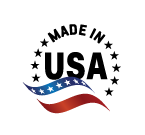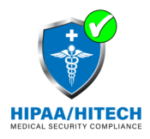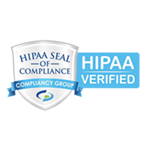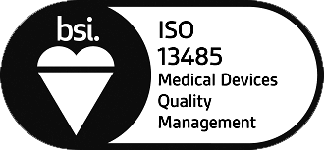Asked & Answered: Product, Testing, COVID, & More
This is required language by the FDA.
Outside of any “state of emergency”, in normal testing scenarios, there are generally 2 main types of tests done. You have diagnostic testing and then you have everything else. Items in that everything else category includes things like DNA testing for research-based projects to heritage or allergy tests. When you are not attempting to diagnose a health-related issue the FDA considers it more of a consumer-based product and optional, not placing or mandating any specific regulations.
On the flip side, when you are performing a diagnostic test, of any type there are very strict and enforced FDA regulations and compliance requirements to ensure the population’s safety the best it can. In this case, it would mean seeing the text “FDA Approved”. In order for a product to earn this seal of approval, it undergoes a minimum of an 18-month validation process proving its value, benefits, and safety. This category has many different “Classes” or types.
In a state of emergency like we are in, the FDA uses the very specific word “Authorized” in place of “Approved”. This means that the device or product passed an abbreviated version of the “approval” process in order to be quickly integrated into usage for the benefit of the larger good it will provide. At Spectrum, we have one saliva collection device for each of the two testing category types. The SDNA-1000 and the SDNA-2000. The SDNA-2000 is currently in the validation process for FDA Approval. Because of the pandemic, applications for FDA 510k approval are placed behind the FDA’s priority of issuing validated authorizations. This is in part because, in this state of emergency, a device EUA authorization is seen as a temporary equivalent. Spectrum’s device EUA (202432) for the SDNA-1000 can be found on and downloaded from the FDA’s website.
You will not be able to find a place to register your testing kit on our website because Spectrum is not a lab with the specialized equipment required to process any biological samples for any purpose. Diagnostic testing has three main steps or parts that make up its complete process: Bio-sample collection, test processing, and evaluating/reporting results. Spectrum is the medical device manufacturer of the SpectrumDNA saliva collection system, the first step in this process. A system that was created to collect and preserve the saliva sample, engineered to inactivate the virus inside that sample (if one should be present), and securely deliver that saliva sample to whichever lab the user purchased or received this collection kit from.
You will want to visit the website of the service provider you purchased or received this collection kit from and register your testing kit there.
While the rapid test can get you results very quickly, the results may not always be accurate. Rapid tests are considered the most accurate in a patient who is having symptoms of COVID-19.
What does a false negative or false positive mean?
In those who don’t have symptoms, the false-negative rate — meaning my test is negative but I actually have the disease — can be as high as 50%. This can have tremendous consequences as we try to contain the spread of COVID-19.
The false-positive rate — meaning I test positive but I do not really have the disease — is quite low. So, if you test positive from a rapid test it is more likely you do have the disease.
Depending on where you purchased your COVID-19 test from, it will be only that company or organization that maintains the portal and process for retrieving your test results.
Spectrum Solutions is the medical device manufacturer and supplier of the saliva collection kit you may have used to collect your bio-sample. We are not a diagnostic laboratory. It is important to understand that any diagnostic test has two distinctive parts. Part one is the biosample collection. Part two is the processing of that collected biosample by an accredited lab. Often these two parts get melded together and in totality called a “test”. Spectrum’s saliva collection system is responsible for part one of this process.
There are essentially two broad categories of testing, these include:
- Antigen test (frequently referred to as a rapid test). This test detects protein fragments specific to the Coronavirus. It can be done in a clinic, doctor’s office, or hospital. Turnaround time for results is usually very quick and in some cases, results can be reported within 15 minutes.
- PCR test. PCR testing is considered the “gold standard” in SARS-CoV-2 detection. This test actually detects RNA (or genetic material) that is specific to the virus and can detect the virus within days of infection, even those who have no symptoms. The test can be done in a clinic, hospital, or even in your car. Turnaround time is longer, generally in the 2-3 day range but results can be in as little as 24 hours. When demand is high, results can take a week or longer.
There are two approaches that can be taken (and we have done both here in the US) you can get a “test” authorized for COVID-19 testing which breaks down all the different contributing elements like our device, the lab doing the processing, specific assays, extraction chemistries, etc… and there is no deviation from that protocol. Meaning no other lab can copy the protocol without obtaining their own unique authorization using their own proof-points.
Since this is a long and complicated process the other option is obtaining authorization for our individual saliva collection device outside of any specific testing protocol. This provides the widest path of user accessibility offering any and all EUA authorized labs the opportunity to integrate saliva-based COVID-19 testing immediately into their current protocols without a new submission for FDA authorization.
RNA is ribonucleic acid. It’s in all your body’s cells and used to make proteins.
Together, DNA and RNA make up the nucleic acids found in all living cells including within bacteria, archaea, mitochondria, chloroplasts, and viruses. These are essential for all known forms of life. The coronavirus has its own unique RNA. If you get infected with the coronavirus, it injects its RNA into your cells and forces them to make copies of the virus. The new copies burst out of the cell spread the virus to other cells in your body to make more copies.
There are two parts to a saliva-based COVID-19 test. The first is the process of saliva self-collection which is required by EUA authorization to be done with the Spectrum SDNA-1000 collection device. The second is the downstream processing of the saliva sample performed at a EUA authorized lab to detect the presence of infection.
COVID-19 is caused by the SARS-CoV-2 virus. The virus, which can cause mild to severe respiratory illness, was first identified in Wuhan, China, and has now spread globally, including the United States. There is limited information available to characterize the spectrum of clinical illness associated with COVID-19 but it likely spreads to others when a person shows signs or symptoms of being sick (e.g., fever, coughing, difficulty breathing, etc.).
On February 4, 2020, pursuant to Section 564(b)(1)(C) of the Act, the Secretary of the Department of Health and Human Services (HHS) determined that there is a public health emergency that has a significant potential to affect national security or the health and security of United States citizens living abroad, and that involves the virus that causes COVID-19. Pursuant to Section 564 of the Act, and on the basis of such determination, the Secretary of HHS then declared on March 24, 2020, that circumstances exist justifying the authorization of emergency use of medical devices during the COVID-19 outbreak, subject to the terms of any authorization issued under Section 564(a) of the Act.
Based on the totality of scientific evidence available to FDA, it was concluded that the SDNA-1000 Saliva Collection Device is effective in diagnosing COVID-19 by serving as an appropriate means to collect, stabilize, and maintain during transport, unprocessed saliva specimens suspected of containing SARS-CoV-2 RNA and that the known and potential benefits of your product when used for such use, outweigh the known and potential risks of your product. It is also believed that there is no adequate, approved, and available alternative to the emergency use of your product.
- The SDNA-1000 sample collection device has been authorized only for the collection and maintenance of saliva as an aid in the detection of nucleic acid from SARS-CoV-2, not for any other viruses or pathogens.
- The SDNA-1000 sample collection device is only authorized for the duration of the declaration that circumstances exist justifying the authorization of emergency use of in medical devices during the COVID-19 outbreak under Section 564(b)(1) of the Federal Food, Drug, and Cosmetic Act, 21 U.S.C. § 360bbb-3(b)(1), unless the authorization is terminated or revoked.
- The SDNA-1000 sample collection device has not been FDA cleared or approved, The SDNA-1000 is authorized by FDA under an EUA.
- Spectrum Solutions was delivered EUA 202432 for its SDNA-1000 Saliva Collection Device
- This device specific EUA officially means any lab EUA authorized to test samples for COVID-19 using one of the five EUA Authorized commercial RNA extraction chemistries can now integrated saliva as a diagnostic sample option, exclusively using the SDNA-1000, without the need to file for a new EUA specific to saliva.
Based on the totality of scientific evidence the FDA authorization has validated the Spectrum SDNA-1000’s effectiveness in diagnosing COVID-19 by serving as a successful, noninvasive means to collect, neutralize, stabilize, and transport testing samples post-collection at ambient temperatures for over 10 days with no degradation in sample efficacy. Additionally, the FDA states there is no adequate, approved or available alternative to the emergency use of this product.
The only requirement listed by the FDA is that the test is ordered or prescribed by a physician as they see fit. Telehealth facilitates this process easily from those quarantined or unable to leave home.
Spectrum Solutions is actually only the medical device manufacturer of the SpectrumDNA saliva collection system. A system that was created to collect and preserve the saliva sample, engineered to inactivate the virus inside that sample (if one should be present), and securely deliver that saliva sample to whichever lab the user purchased or received this collection kit from.
Spectrum is not a lab with the specialized equipment required to process any biological samples for any purpose but is in fact only responsible for the first step (the sample collection) in a multi-step process.
Together, DNA and RNA make up the nucleic acids found in all living cells including within bacteria, archaea, mitochondria, chloroplasts, and viruses. These are essential for all known forms of life. The coronavirus has its own unique RNA. If you get infected with the coronavirus, it injects its RNA into your cells and forces them to make copies of the virus. The new copies burst out of the cell spread the virus to other cells in your body to make more copies.
Since the pandemic began, scientists developed tests that look for coronavirus RNA in people’s saliva. This is an alternative to the swab tests that involve sticking cotton swabs deep into people’s noses.
-
 Early detection of SARS-CoV-2 infection is critical to reducing the asymptomatic and pre-symptomatic spread of COVID-19.
Early detection of SARS-CoV-2 infection is critical to reducing the asymptomatic and pre-symptomatic spread of COVID-19.
- PCR testing is still considered by the FDA and CDC to be the “gold standard”. It is a more sensitive, accurate, and reliable diagnostic test compared to the rapid antigen lateral flow tests (LFT).
- Rapid antigen LFT tests continue to deliver unacceptably high rates of both false-negative and false-positive test results.
- Saliva-based PCR testing is able to detect the presence of COVID-19 with 99.98% accuracy days before symptoms appear due to the extraction and amplification process with results in under 24 hours.
- The patented and highly sensitive chemical formulation found only in the SDNA-1000, 2000, and 3000 saliva collection devices are able to detect infections from saliva samples measuring as low as 200 copies/ml compared to rapid antigen LFT requiring a minimum of 10,000-20,000 copies/ml.
- In addition, when compared to traditional swab PCR tests SARS-CoV-2 RNA first appears in saliva and then later in nasal-swab samples. A high-sensitivity (limit of detection of ∼10 3 copies/mL) RNA test detected SARS-CoV-2 virus in saliva 1.5 to 4.5 days before the viral load in the paired nasal-swab samples.(1)
First, it is important to understand that any diagnostic test has two distinctive parts. Part one is the biosample collection. Part two is the processing, by an accredited lab, of that biosample to render an answer to the diagnostic question presented. Often these two parts get melded together and in totality called a “test”. Spectrum’s saliva collection kit takes care of part one. The individual parts of this process standing on their own are not a “test”.
The FDA makes a distinction between approved and authorized tests and devices. During normal conditions and states of affair, applications for approval on tests and devices are submitted to the FDA for approval. This is a lengthy process that requires many levels of validation, verification, and test trials for both the device manufacturer and/or test provider. This process in general spans anywhere from 18 months to many years. In situations like this COVID-19 pandemic, exceptions are made in the form of “authorizations” the FDA calls them Emergency Use Authorizations (EUAs). The intent of these authorizations is to place new innovative solutions that answer a specific need at the front of the validation line to fast-tracking their integration and usage for the period of time the emergency situation exists. Because this is an accelerated procedure to fill a specific need it’s deemed a temporary authorization, however still bears the weight of an FDA validated process. This means that the FDA has taken the steps to prove its accuracy, viability, and safety in a shortened amount of time.
There are individual EUA’s for every different and authorized type of COVID-19 test available. Deviation from the individual elements or processes that have been authorized by the FDA is not allowed unless authorized by the FDA. In October, Spectrum’s SDNA-1000 saliva collection system secured individual device FDA authorization (EUA 202432). This authorization provides a path for the immediate integration of saliva-based testing into current and authorized COVID-19 testing protocols without the need to apply for new, or amend existing, FDA testing authorizations. Spectrum’s EUA is supported by the Secretary of Health and Human Service’s (HHS’s) declaration that circumstances exist to justify the emergency use of in vitro diagnostics for the detection and/or diagnosis of the virus that causes COVID-19. This EUA will remain in effect (meaning testing that incorporates saliva collected with the SDNA-1000 may be used) for the duration of the COVID-19 declaration justifying emergency of IVDs, unless it is terminated or revoked by FDA.
This is often misunderstood by test users. Our device is one element of the testing process. We are not a test by itself.
Spectrum Solutions is the medical device manufacturer of the SpectrumDNA (SDNA) saliva collection system. A system that was created to collect and preserve the saliva sample, engineered to inactivate the virus inside that sample (if one should be present), and securely deliver that saliva sample to whichever lab the user purchased or received this collection kit from.
Spectrum Solutions is actually only the medical device manufacturer of the SpectrumDNA saliva collection system. A system that was created to collect and preserve the saliva sample, engineered to inactivate the virus inside that sample (if one should be present), and securely deliver that saliva sample to whichever lab the user purchased or received this collection kit from.
Spectrum is not a lab with the specialized equipment required to process any biological samples for any purpose but is in fact only responsible for the first step (the sample collection) in a multi-step process. Additionally, before COVID-19, saliva had not been used for any viral testing. Period. This was a new discovery (stemming from a study we initiated in March of 2020) looking for a better testing solution. Pre-COVID, saliva was primarily used by labs (again, Spectrum is not a lab) for testing applications that included DNA. This includes everything from heritage tracing to a cancer diagnosis. The packaging and instructions for the Spectrum collection kit are a reflection of its original focus and purpose and solely explain how to use the product in order to get a viable sample to a lab for processing. In the end, what is extracted from the saliva sample contained inside is determined by the test ordering doctor and performed by a lab with that type of expertise and equipment.
Spectrum is the medical device manufacturer and supplier of the saliva collection device you may have used to collect your bio-sample. We are not a diagnostic laboratory. Testing results and the time it takes to process testing are determined by the lab doing the processing. You will need to reach out to the company or organization the test was purchased from for this information.
Over 10-days of post-collection stability with no degradation of sample efficacy
Now that our SDNA-1000 saliva collection kit has its own device EUA authorization from the FDA, any lab currently EUA authorized for COVID-19 diagnostic testing can now simply integrate saliva collected with our system and start testing immediately. This removes the previous requirement for the lab to individually validate and submit for its own EUA using saliva as a diagnostic biomaterial. This is a huge win for patients and opens up not only access but testing availability nationwide. This new development additionally helps keep lab test processing costs at an all-time low. Since 99% of the EUA Authorized labs are CLIA Certified labs, the easiest way to find a lab in any location is to use the CDC’s lab search tool. Here is a link to their website tool: https://www.cdc.gov/clia/LabSearch.html#
On this page, you will see the box in the center that says “Search Criteria”. If you don’t know the CLIA number or name to use in your search, right under those boxes it says “Advanced Search – Show”. If you click on this you can enter a city and state to see who is located in whichever area you choose.
Spectrum is the medical device manufacturer and supplier of the saliva collection device used to collect the bio-sample for testing. In order to purchase a COVID-19 test, you can contact your doctor or local healthcare organization and ask if they are using saliva. If they aren’t you can also purchase a saliva testing kit from an authorized third-party end-to-end solutions provider. Click here to see a list of options based on your buyer profile.
Yes. The SDNA product line has received its CE Mark approval. Click here to read the press release.
The European CE Mark represents a standard of excellence and regulatory validation required to sell medical devices within the European Economic area. The equivalent mark within the United States would be an FDA medical device 510k approval. This mark demonstrates conformity with health, safety, and environmental protection standards for products sold within Europe.
There are no temperature requirements for shipping.
The following results demonstrate that SARS-CoV-2 RNA saliva specimens are stable in the SDNA-1000 Saliva Collection Device when exposed to a broad range of temperature conditions. These data support the use of the SDNA-1000 Saliva Collection Device for transport and storage of specimens following home collection of saliva.
To support home use of the Spectrum Solutions LLC SDNA-1000 Saliva Collection Device, a Simulated Shipping Study was performed that was designed to evaluate the effect of temperature variation on the stability of SARS-CoV-2 RNA during transport of saliva specimens. The study was conducted using residual clinical specimens that had previously been reported as SARS-CoV-2 positive or negative using the Rutgers TaqPath SARS-CoV-2 Assay, and which were stored at -80°C until the start of the study. The SARS-CoV-2 positive specimens were selected based on the Ct values obtained upon initial testing and covered the spectrum of Ct values observed with the assay.
To perform the study, the specimens were thawed and then subjected to the thermal profiles outlined in Tables 10 and 11 which were intended to simulate the extreme temperature conditions that may be experienced in the shipment of specimens during the summer and winter, respectively. At the conclusion of each thermal profile, the samples were retested with the Rutgers TaqPath SARS-CoV-2 Assay, and the results obtained were compared to those reported upon initial testing at the time the specimens were received. A summary of the mean Ct values observed for each SARS-CoV-2 specific target gene is provided in Table 12. The Ct values for each individual sample are presented graphically in Figure 1. (See EUA summary)
According to the FDA, if you are a CLIA lab already EUA authorized to process COVID-19 diagnostic tests using one of these five authorized commercial RNA extraction chemistries (Perkin Elmer, Thermo Fisher, Roche, King Fisher, and Qiagen) you can immediately integrate saliva-based testing into your current protocol. Spectrum’s SDNA-1000 EUA-202432 means your lab does not need to submit for its own individual EUA for saliva-based testing. Validations for the FDA using Spectrum’s SDNA-1000 saliva collection system are only required should your lab wish to receive its own EUA for saliva-based testing incorporating an element not previously authorized or validated by the FDA.
Yes.
If you have questions please reach out to your Spectrum contact or visit our contact us page.
Yes, we are adding new distribution partners and listing them on the website as they become available. We will also send out email notifications to our contact lists when new distributors are added.
Yes.
Now that our SDNA-1000 saliva collection kit has its own device EUA authorization from the FDA, any lab currently EUA authorized for COVID-19 diagnostic testing can now simply integrate saliva collected with our system and start testing immediately. This removes the previous requirement for the lab to individually validate and submit for its own EUA using saliva as a diagnostic biomaterial. This is a huge win for patients and opens up not only access but testing availability nationwide. This new development additionally helps keep lab test processing costs at an all-time low. Since 99% of the EUA Authorized labs are CLIA Certified labs, the easiest way to find a lab in any location is to use the CDC’s lab search tool. Here is a link to their website tool: https://www.cdc.gov/clia/LabSearch.html#
No.



How many diagnostic tests does it take for an accurate & reliable result?














